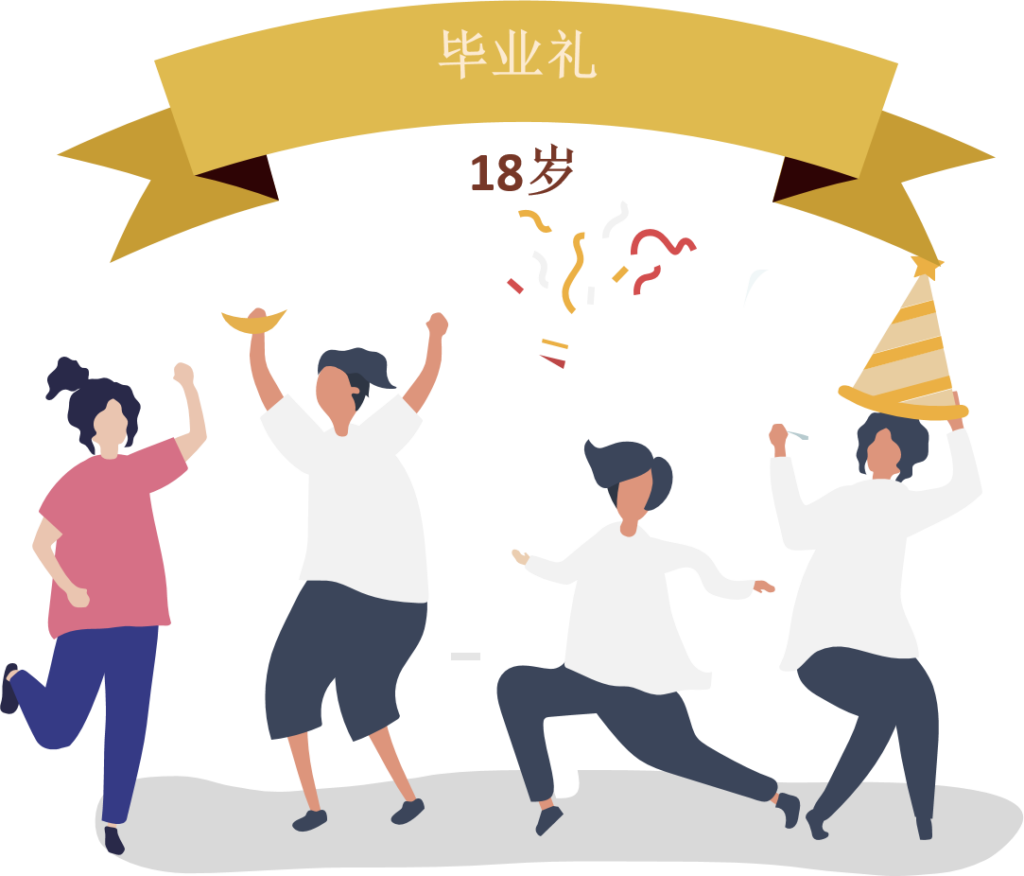
Learning
Such activities involve traditional teaching at home or community centers, specialized weekend programs, or at schools if they are integrated into the regular curriculum. In addition, minors should learn conventional skillsets necessary for survival as an adult in society, such as cooking, cleaning and interacting with strangers.

Practice
The practice component of development involves two tasks. First, initiates should apply what they have learned in the classroom to real life. Second, initiates should develop the habit of volunteering 2% of their time (one week a year). Parents are encouraged to volunteer alongside their children during this period, if appropriate.

Evaluation
Periodic evaluations, rather than a one-time evaluation like the College Entrance Examination. Evaluations can be either written or hands-on skill tests, depending on the topic and should be incorporated into learning and practice. Initiates must pass all required evaluations and a certain number of elective evaluations.


